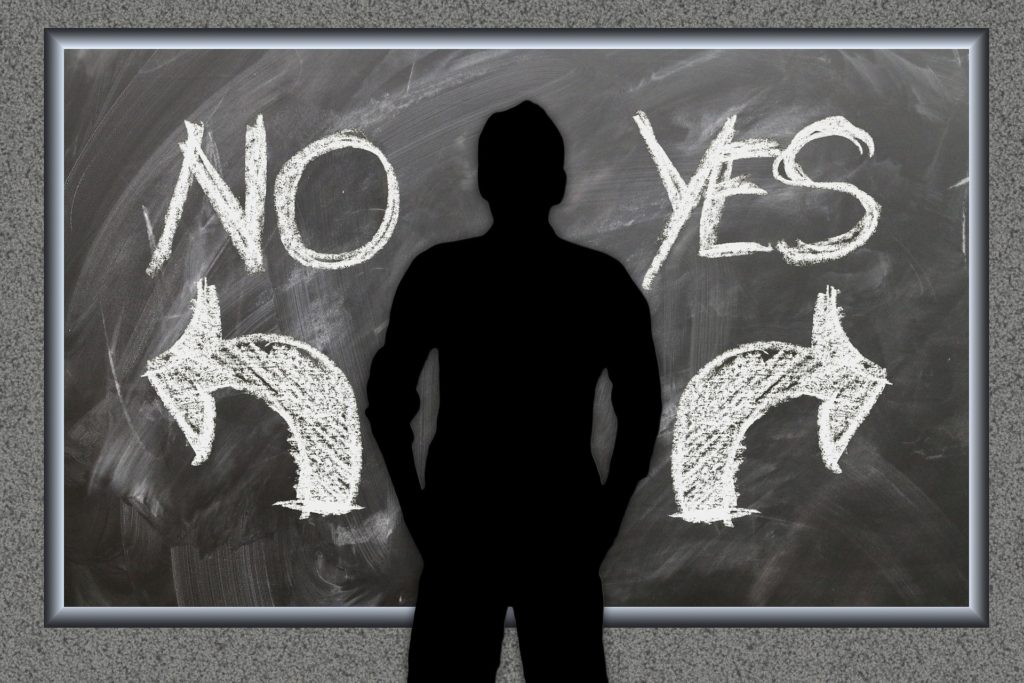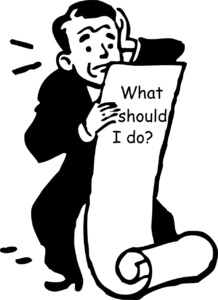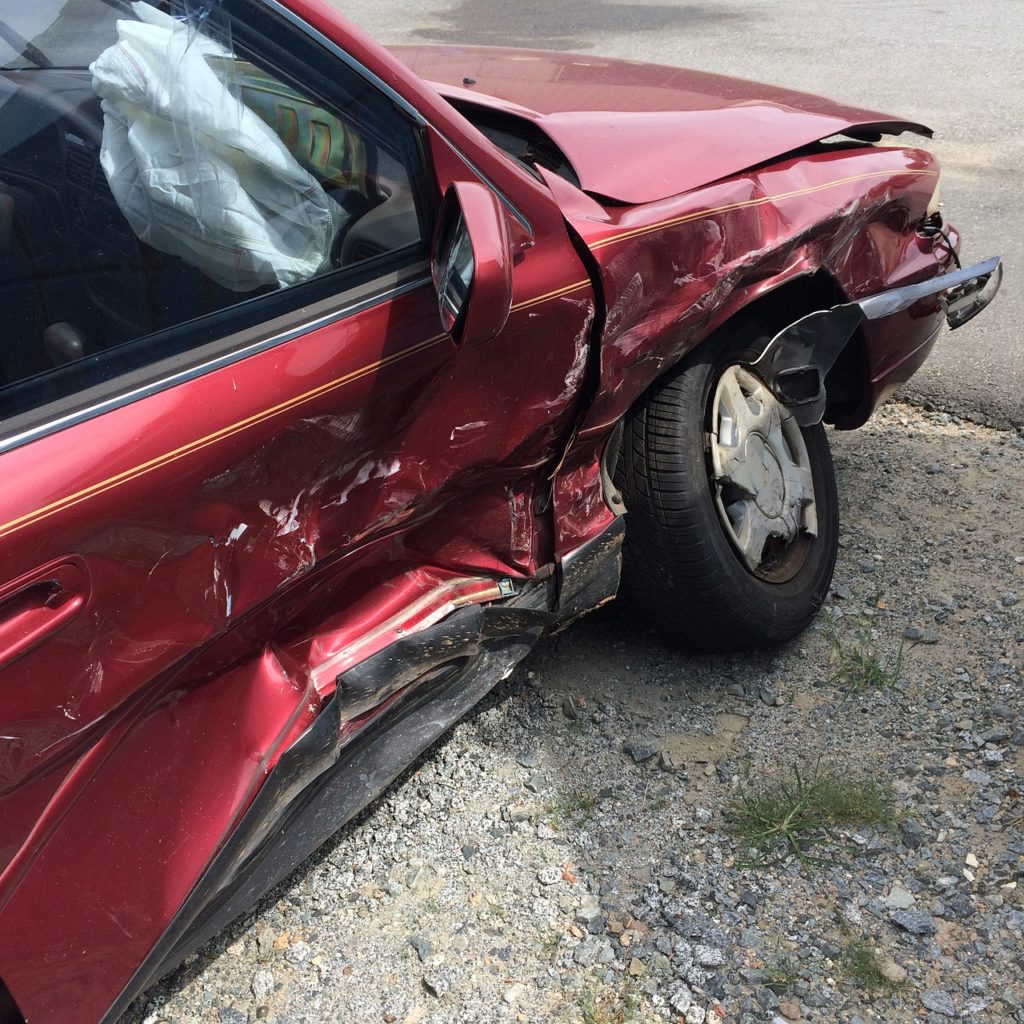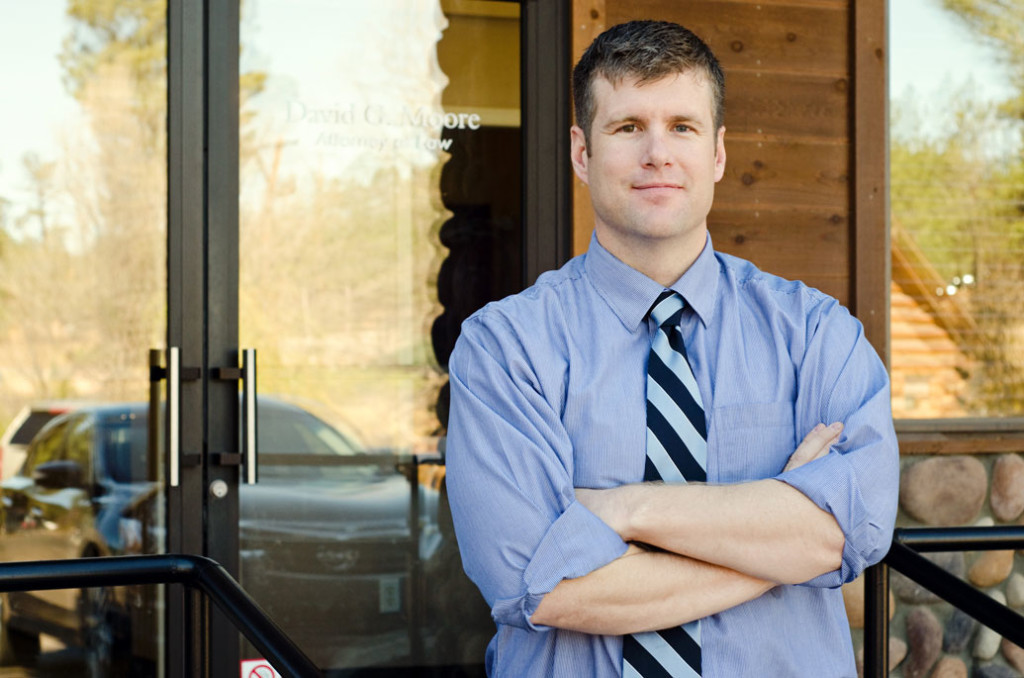Welcome to the Moore Law Blog
Is My Case Big Enough To Hire An Attorney?

When injured in an accident, one of the most important decisions you will need to make is whether you should seek legal counsel. Maybe you decide not to hire counsel because you mistakenly think that the insurance company is there to help you through the process (find out why this isn’t the case). Perhaps you want help but believe you can’t afford an attorney (see why “contingency basis” is good news for you.). Or you may simply find yourself asking: Is my case big enough to hire an attorney?
While it is always smart to call an attorney when in doubt, this question is one that should not be answered too quickly. There are various indicators that a qualified attorney will initially assess, but often it is the specific details of your case that will ultimately determine whether it makes sense for you to pursue litigation further. If you have suffered more than a minor injury, a thorough consultation is usually the best way to determine the real potential of your case.
Let’s consider a few aspects to be considered when analyzing a personal injury case:
- Is your injury minor or major?
- Have you sought professional treatment for your injury?
- How well is your injury responding to treatment thus far?
- Does your doctor foresee future treatment as necessary?
- Are you dealing with a lot of medical costs as a result of the accident?
- Is the at-fault party insured and what are the policy limits?
These are just a few of the questions whose answers will determine whether your case would benefit from hiring an attorney.
Often personal injury cases that appear small at the onset become big cases when the injured starts treatment. That minor neck sprain turns out to be a herniated disc; a shoulder sprain may be a torn rotator cuff; or a swollen knee is really a damaged meniscus. If your minor injuries turn out to be major ones and you accepted a quick settlement there will be no way for you to seek further compensation. A good attorney will counsel you to wait until you know the full extent of your injuries before negotiating any claim.
If you were not at fault in an accident and you are injured, your case is important. Before making any final decisions on representation, it is always a good idea to sit down with an attorney and discuss your options. At the very least, you will gain knowledge and feel confident about making the best decisions for you and your loved ones.
Find out more about What To Do After A Personal Injury Accident.
What is a Statute of Limitations & How Does It Affect My Case?
You may have heard the term statute of limitations before in legal or business discussion and dismissed it as technical jargon that didn’t apply to you. But if you have been in an accident, you may want to listen up.
Like all states, Arizona has a law that is called the statute of limitations. This law sets a time limit on bringing a personal injury case to court. It affects any case you might file in court after an accident or injury. This includes car accidents, work place accidents, motorcycle accidents, and all other personal injury related accidents.
In Arizona, you typically have two years to file a lawsuit related to a personal injury. In most cases, this time limit starts running on the date of your accident or injury and actually ends the day prior to the two-year mark. So if you were in an accident on February 3, 2016, then February 2, 2018, is the last possible day you can file a lawsuit related to an injury incurred in that accident.
Although two years may seem like a long time to file a lawsuit, there are many cases in which this time period goes faster than expected. A prolonged recovery schedule from your medical provider or a difficult insurance company are just a few examples of circumstances that can easily eat away months of this time. If you do not bring your claim within the statute of limitations applicable to your case, you will lose your right to bring or continue your claim(s).
Not as typical, there are other circumstances where a different time limit may be imposed. For this reason, it is important to seek legal advice as promptly as possible after you are involved in an accident or suffered injuries. A good attorney will counsel with you regarding the merits of your case, the statute of limitations applicable to your particular injury, and direct you in finding the best solution possible.
Still have questions? Feel free to contact Moore Law today and we will help get you the answers you need.
Why Do I Need An Attorney?: Top 3 Myths Debunked
We love a good DIY project. But handling your own legal work is not the best idea. Why? Stay tuned as we debunk several myths about legal DIY and how a good attorney protects your best interest.

Myth #1: I keep more money in my pocket if I handle my own legal negotiations.
Most people believe they will keep more money in pocket if they don’t have to pay an attorney. This makes sense intuitively since minimizing costs will maximize return. However, without experienced legal assistance, you may also minimize your recovery.
The reality is that an experienced personal injury attorney will nearly always increase the settlement amount significantly for a variety of reasons. Foremost, many insurance companies are tricky in the way they handle claims and “claimants” (i.e. you) and often get you to agree to a settlement that is much less than what your claim may be worth.
Second, insurance companies are much more motivated to provide fair value for your claim if litigation from an attorney appears to be a real threat. In other words, insurance companies know they will be obligated to pay legal fees if they shortchange your claim when an experienced personal injury attorney is involved.
And finally, an experienced lawyer can often reduce medical provider liens filed and negotiate down health insurance expenses — both of which you must pay out of your final final settlement. These savings very often pay for the attorney’s fees and then some; leaving more money in your pocket and less headache throughout the process.
The goal at Moore Law is that you receive more money in your pocket with our help than you would have received without it!
Myth #2: I can just get an attorney later if I need to go to trial.
While you certainly can obtain an attorney prior to litigation, your case will be much better prepared to go to court (and win) if you initiate your case with legal representation. Many of the missteps that occur during DIY methods significantly decrease the amount recoverable in a trial. Most of these missteps occur during the first few months after an accident.
Clients giving a recorded statement to an insurance company, for example, is an often agreed to request by the unknowing DIYer that can easily undermine a favorable judgment in court. Insurance companies are smart and spend a lot of time and resources crafting questions to ask you in recorded statements. If it weren’t beneficial for them, they would not waste their time obtaining your recorded statement in the first place.
This recorded statement often rears its head in litigation to argue against you. Things that you say a week after the accident (“I feel okay right now.”) can be used to demonstrate that you should not require medical treatment later since you were “okay” one week after the accident.
A good personal injury attorney will take are of the administrative headaches associated with an injury claim, decrease the amount taken by third parties, and ultimately increase the amount of money recovered by their client.
Myth #3: The insurance company seems to be working with me fine; what’s the big deal?
Not all insurance companies are trying to take money from you. Then again, they are not your friend either. Rest assured that your interests are NOT their interests.
Most adjusters are friendly personalities that are easy to talk to — at least initially. They prefer to act quickly, catching claimants unprepared and guiding you away from hiring an attorney. (They know that hiring an attorney means you will get a better settlement.) They may offer a quick, small payment right up front hoping you will agree to it and simultaneously releasing them from any further liability (i.e. paying you any more!).
Additionally, they may casually request a recorded statement like it is standard procedure. The truth is that you are not required to give a recorded statement and they are really hoping to glean something from the recording that will lessen or cancel their liability.
These and many other sneaky tactics are the reason you need a knowledgeable attorney with experience to help you maneuver this process and communicate directly with the insurance on your behalf. Otherwise you will easily allow them to pay you less and save their company money.
As the famous basketball saying goes: “The best defense is a good offense.” A good attorney can act as that offense and help you negotiate for your best interests.
If you or someone you care about has been involved in an accident, feel free to contact Moore Law for a free case evaluation.
What Is Diminished Value & Do I Deserve It?
Diminished Value (DV) is one of those phrases you often hear thrown around in legal and insurance offices, but that is confusing to many. Let’s discuss what it is in simple terms and why that may matter to you.
When you are involved in a motor vehicle accident through no fault of your own, there are two types of cases: (1) Property Damage (involving your vehicle); and (2) Bodily Injury (your medical treatment and care). The Property Damage (“PD”) portion of your case involves only the totaling or repairing of your vehicle. The Bodily Injury (“BI”) portion of your claim is much more complex. You can find more on a BI claim here.
If your vehicle is seriously damaged but not totaled, you may find yourself in a situation where your vehicle is fixed but loses value overall. Of course, you will not be able to determine the exact amount of value you have lost until you actually sell your vehicle. The value you have lost is considered Diminished Value (“DV”).
More precisely, DV occurs when a vehicle has been involved in an accident and is repaired. The loss in value to your vehicle is the difference between what a reasonable person would pay for your vehicle if it had never been involved in an accident and what that same person would pay for the vehicle after the accident and repairs. Another way to think of diminished value is under this scenario: you are given the ability to purchase one of two vehicles. They are identical, except one vehicle has been in an accident and the other has not. Most people would expect to less for the vehicle that had previous damage. This difference is referred to as diminished value.
The good news is that Arizona allows compensation for the diminished value to your vehicle after the accident and subsequent repairs. The problem is that proving the loss in value is sometimes difficult. Some insurance companies would have you believe that you must sell your vehicle in order to prove the diminished value to your vehicle. A recent Arizona case states otherwise. In Oliver v. Henry, 227 Ariz. 514 (2011), the court of appeals stated “We conclude that Arizona law does not require the sale or transfer of a damaged vehicle to establish a claim for diminution in value or to prove the amount of the loss in value. (id. at 519). In fact, it is possible to prove the loss through the use of an expert appraisal.
Keep in mind that not all vehicles are eligible for diminished value claims. In fact, a good rule of thumb is that if your vehicle is two (2) years old or older, you will probably not be able to recover DV. Additionally, you only have two years in which to bring a case for the diminished value of your vehicle. We are here to help you navigate through the obstacles of making a claim for DV to your vehicle after an accident, as well as help you with your personal injury case.
If you have any questions about your personal injury case, it is recommended to consult with your local personal injury attorney.
Moore Law Firm Welcomes New Attorney
We made the news this week! Check out our article in the White Mountain Independent Business section.
Nicholas D. Patton has joined Moore Law Firm, PLLC, as an associate attorney. Nick’s practice will focus on real estate, contracts, business, civil litigation, estate planning, environmental law and natural resources. The firm is excited about the additional services now offered to its clients.
Nick graduated from the University of Arizona in 2009 with a B.S. in Environmental and Water Resource Economics. Nick then went to law school at the University of Arizona and received a Certificate in Environmental Law with an Emphasis in Water Law, graduating in 2012.
He is a member of the Arizona Bar Association. Previous to his work at Moore Law, Nick was an associate attorney at Brown & Brown Law Offices, P.C. in the Pinetop office.
In addition, Moore Law moved its offices to a larger suite to accommodate its growing staff. Still located in the Show Low Business Plaza at 2707 S. White Mountain Road, Moore Law is now in Suite H. The firm is excited about the additional legal services now offered to its clients. Contact Moore Law at 928-532-0100 or stop by to see the new additions.
Moore Law Celebrates First-Year Anniversary
We made the news! Check out our article in the White Mountain Independent Business section.
Moore Law, PLLC celebrates its inaugural year of operation in Show Low this October. The firm focuses on the practice areas of personal injury, worker’s compensation, and civil litigation, among others. “It has been an exciting year and I am happy to say that our law office is not only surviving, but thriving,” says David Moore, founding attorney and owner.
Located off White Mountain Road in the Show Low Business Plaza, Moore Law is the only local firm providing worker’s compensation law assistance to White Mountain residents. Moore explains, “It’s important to me that local residents have options for legal assistance besides Phoenix firms that only visit our area casually. I not only work here, but live here too and am dedicated to the area’s citizens.”
What’s next for Moore Law? The firm hopes to continue to grow its litigation practice in the area. “We are extremely grateful to all of the clients and people who have supported us during this year. It is exciting to be a part of such a great community.”
Contact Moore Law by calling 928-532-0100 or visiting their office at 2707 S. White Mountain Road, Suite D* in the Show Low Business Plaza. (*Moore Law has moved to Suite H)
Personally, and on behalf of everyone at Moore Law, we want to express our gratitude to all of the clients and people who supported us during this year.





